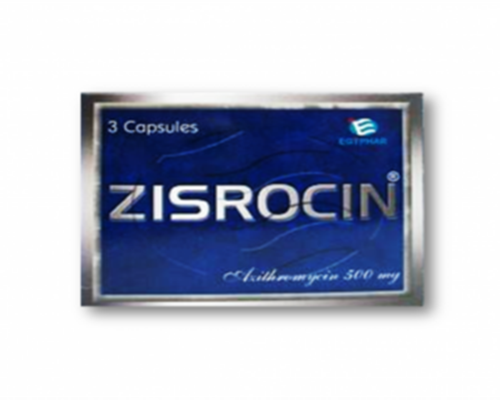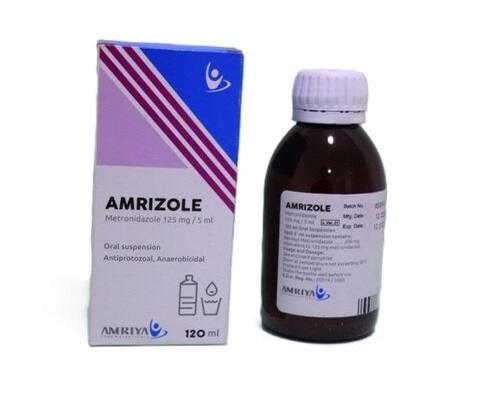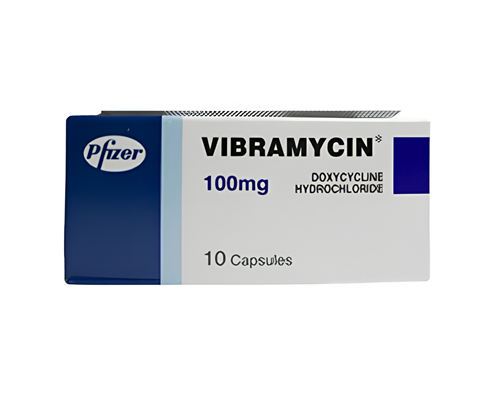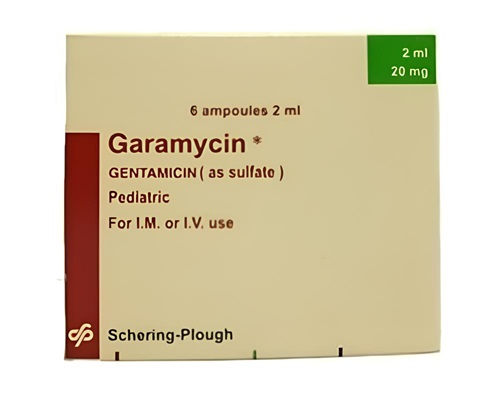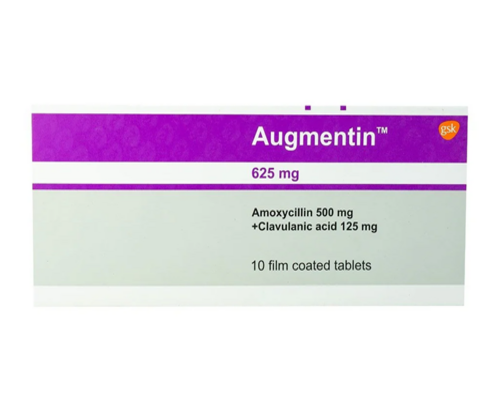Description
Trade name:
Zisrocin
Composition:
Each capsule contains:
Azithromycin dihydrate 524 mg, equivalent to 500 mg azithromycin
Properties:
A broad-spectrum antibacterial drug from the macrolide-azalide group, acts bacteriostatically.
Indications:
Infectious and inflammatory diseases caused by microorganisms sensitive to the drug:
-infections of the upper respiratory tract and ENT organs: pharyngitis, tonsillitis, sinusitis, otitis media;
-infections of the lower respiratory tract: acute bronchitis, exacerbation of chronic bronchitis, pneumonia, including those caused by atypical pathogens;
-infections of the skin and soft tissues: acne vulgaris of moderate severity, erysipelas, impetigo, secondarily infected dermatoses;
– the initial stage of Lyme disease (borreliosis) – erythema migrans;
– urinary tract infections caused by Chlamydia trachomatis (urethritis, cervicitis).
Method of administration and dosage:
Zisrocin is taken orally once a day at 500 mg, 1 hour before meals or 2 hours after.
Adults (including the elderly) and children over 12 years of age weighing over 45 kg:
For infections of the upper and lower respiratory tract, ENT organs, skin and soft tissues: 500 mg once a day for 3 days (course dose – 1.5 g).
For acne vulgaris of moderate severity: 1 capsule of 500 mg once a day for 3 days, then 250 mg 2 times a week for 9 days. The course dose is 6.0 g.
For migratory erythema: on the first day, 2 capsules of 500 mg at a time, then from the 2nd to the 5th day, 500 mg daily. The course dose is 3.0 g.
For urinary tract infections caused by Chlamydia trachomatis (urethritis, cervicitis): 2 capsules of 500 mg at a time.
Contraindications:
-severe liver and/or kidney failure;
-children under 12 years of age weighing less than 45 kg (for this dosage form);
-breastfeeding;
-simultaneous administration with ergotamine and dihydroergotamine;
-hypersensitivity to macrolide antibiotics.
Contraindications:
-severe liver and/or kidney failure;
– children under 12 years of age weighing less than 45 kg (for this dosage form);
– breastfeeding;
concomitant use with ergotamine and dihydroergotamine;
– hypersensitivity to macrolide antibiotics.
Precautions:
Zisrocin is recommended for use during pregnancy only in cases where the expected benefit from its use for the mother outweighs the potential risk to the fetus.
During treatment with Zisrocin, breastfeeding is suspended.
If you miss a dose of the antibiotic, take the missed dose as soon as possible and take subsequent doses at 24-hour intervals.
Side effects:
From the digestive system: nausea, vomiting, diarrhea, abdominal pain, loose stools, flatulence, indigestion, anorexia, constipation, change in tongue color, pseudomembranous colitis, cholestatic jaundice, hepatitis, changes in laboratory parameters of liver function, liver failure, liver necrosis (possibly fatal).
Allergic reactions: itching, skin rash, angioedema, urticaria, photosensitivity, anaphylactic reaction (in rare cases fatal), erythema multiforme, Stevens-Johnson syndrome, toxic epidermal necrolysis.
From the cardiovascular system: palpitations, arrhythmia, ventricular tachycardia, prolongation of the QT interval, torsades de pointes.
From the nervous system: dizziness/vertigo, headache, seizures, drowsiness, paresthesia, asthenia, insomnia, hyperactivity, aggressiveness, anxiety, nervousness.
From the sensory organs: tinnitus, reversible hearing loss up to deafness (when taking high doses for a long time), impaired perception of taste and smell.
From the circulatory and lymphatic systems: thrombocytopenia, neutropenia, eosinophilia.
From the musculoskeletal system: arthralgia.
From the genitourinary system: interstitial nephritis, acute renal failure.
Others: vaginitis, candidiasis.
Storage method:
Store at a temperature not exceeding 30 degrees.
Packaging:
The cardboard box contains paper instructions and one blister with 3 capsules.

